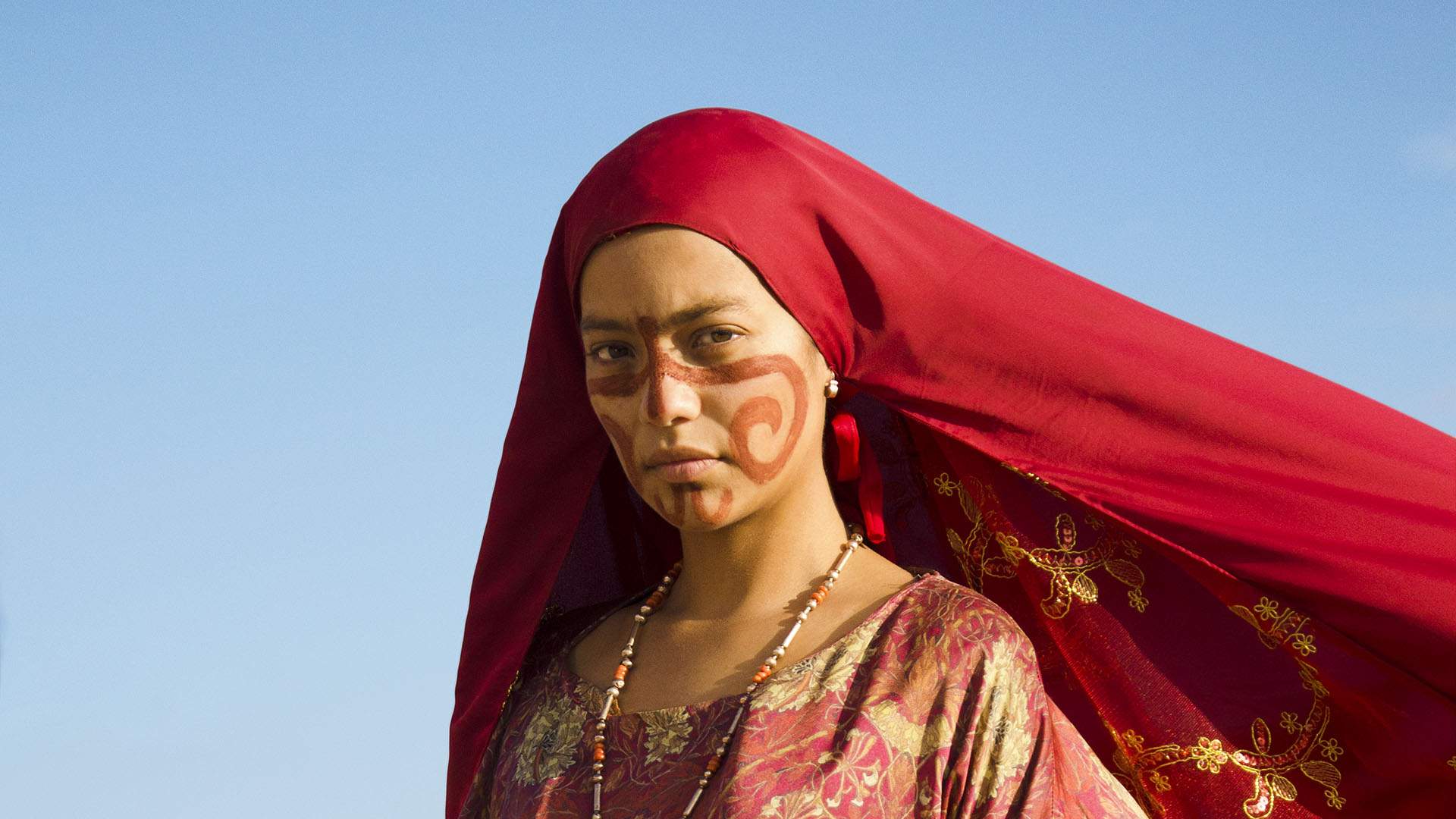Birds of Passage
Engrossing from start to finish, this distinctive Colombian drug drama doubles as a breathtaking study of the country's Wayúu culture.
Overview
UPDATE, August 19, 2020: Birds of Passage is available to stream via Stan, Google Play, YouTube Movies and iTunes.

Thanks to Narcos, Blow and plenty of similar films and television shows, the term 'Colombian drug drama' conjures up a particular image. But that's not what viewers will find in Birds of Passage, a movie that falls into the same broad category while carving its own niche. Forget Pablo Escobar, piles of cocaine and cartels fighting against the US. Forget the genre's usual slick and shiny sheen, too. Instead, Ciro Guerra and Cristina Gallego (Embrace of the Serpent) immerse their feature within a highly insular indigenous tribe, watching as its way of life is forever changed after getting into the marijuana business. The result: a multigenerational crime saga that's as much a portrait of Colombia's Wayúu community as it is about dealing in illicit substances.
If the above description didn't already distinguish Birds of Passage from other drug-fuelled gangland affairs, then its visuals achieve that feat. As they did with their last picture (which Guerra directed and Gallego produced and helped edit), the filmmaking duo take an ethnographic approach, as seen in each of the movie's vibrant images and scenes. Showcasing traditional locations, clothing and ceremonies, the pair don't just present these details — in every shot and sequence, they revel in them. With ample assistance from returning cinematographer David Gallego, Birds of Passage is filled with dusty plains far removed from the Colombian drug trade's stereotypical jungles, intensive rituals used to initiate courtships and striking jewellery that has more than a decorative impact.
Indeed, to see the absorbing and engrossing film's frames flicker by is to walk through the Guajira region of in the country's north, bear witness to its first peoples and explore their intricacies. While it should go without saying, other dramas that do this aren't just rare — they're non-existent. It's this specificity that both marks and shapes Birds of Passage, especially as its story purposefully winds down a recognisable path. Guerra and Gallego want their audience to take in everything that makes the Wayúu who they are, but they also want to highlight that devastation can and will plight any culture, even this one, once it's steeped in a destructive cycle of power, wealth, death and bloodshed.
When the feature opens in a desert village, such matters appear far from everyone's minds. Emblazoned in red from head to toe, local beauty Zaida (Natalia Reyes) is the centre of attention, with young men lined up to win her heart — and willing to dance until they drop to do so. Rapayet (José Acosta) doesn't falter; however, although Zaida is instantly smitten, her mother Ursula (Carmiña Martínez) is hardly convinced. The formidable matriarch sets a high dowry of 30 goats, 20 cows, five necklaces and two decorative mules, expecting that the determined suitor won't be able to pay. But after a chance meeting with weed-seeking American Peace Corps volunteers, Rapayet and his pal Moisés (Jhon Narváez) discover a way to make all the money they need (and all the goats, cows, necklaces and decorative mules as well).
Set across a two-decade span from the late 1960s to the early 1980s, Birds of Passage charts the ups and downs that ripple throughout the entire Wayúu enclave, as seemingly simple choices have far-reaching consequences. It's not difficult to guess where Zaida and Rapayet's tale is headed across its five chapters, or that of their entire tribe — or to foresee that Ursula's fears about her possible future son-in-law will prove well-founded. That said, it's worth noting that she's also obsessed with dreams and omens, interpreting everything around her for signs about her family's future, a technique that Guerra and Gallego also deploy with their narrative. It isn't difficult to discern what'll happen at each turn, but that's the basis of this epic film's sweeping tragedy: audiences can glean what happens next, just as Ursula tries to, and yet everyone remains thoroughly powerless to stop it.
The same idea bubbled through Gabriel García Márquez's landmark novel One Hundred Years of Solitude, and the same haunting feeling of inevitability, too. Tint the Colombian author's awarded and applauded 1967 tome with an extra layer of shattering bleakness, bring it to the screen with breathtakingly vivid images and set it in a unique gangster world, and that's Birds of Passage — almost. One of the wonders of this stunningly shot and performed movie is how it nods to literary greats, to on-screen crime sagas like The Godfather and The Sopranos, and even to Shakespeare's darkest accounts of misfortune, and yet remains a wholly distinctive work. In plunging viewers into a specific way of life, beholding its beauty and watching how something so fragile can crumble when plagued by corruption, Guerra and Gallego peer closely and systematically, while also seeing the bigger picture. That's what great ethnographers do — and great filmmakers.





